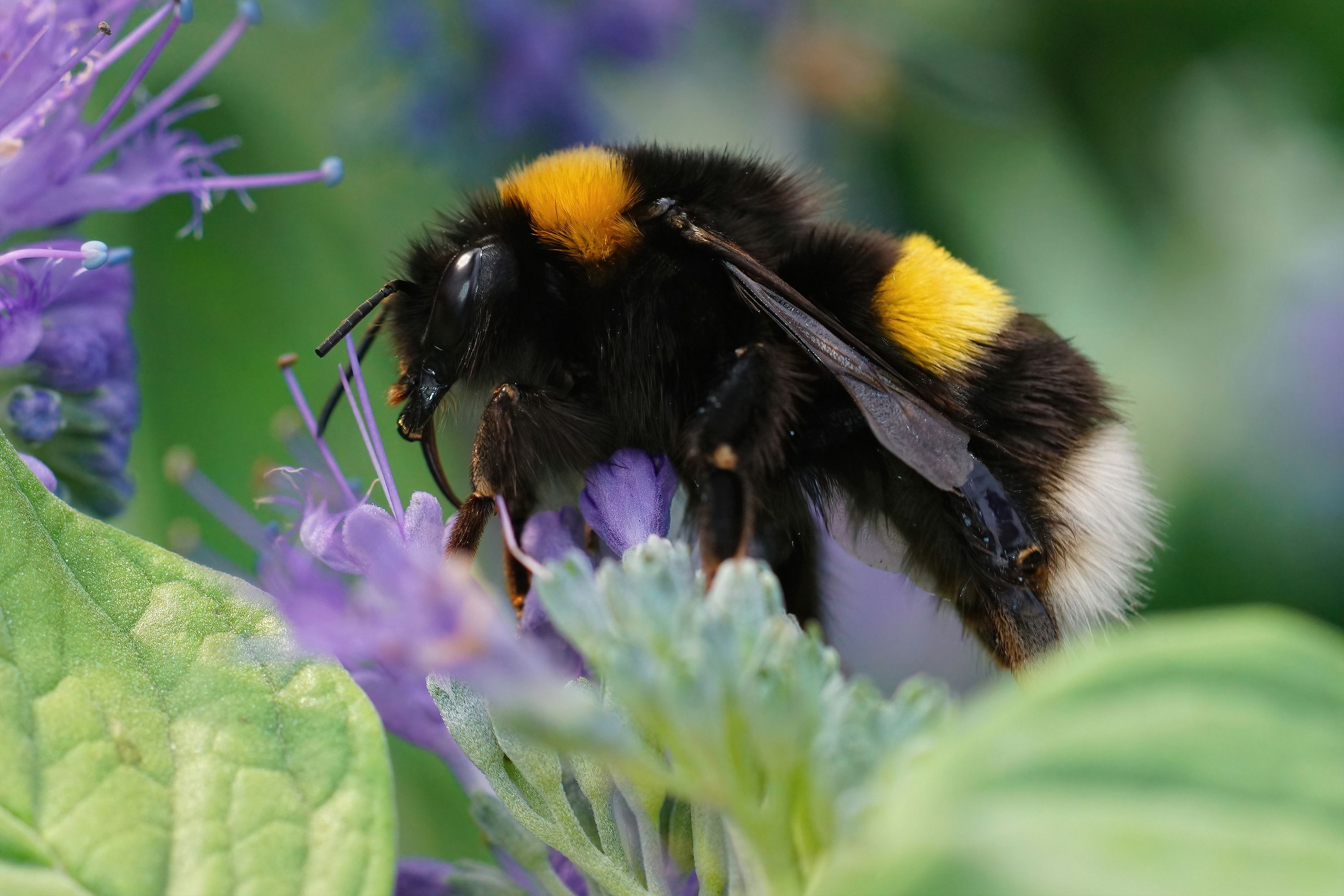Scientists Accidentally Discovered That Hibernating Bumblebee Queens Can Survive Underwater For Up To One Full Week

You may not think of bugs as tough, powerful creatures since most of them can be easily squashed with a stomp of your foot. But, some insects can accomplish great feats of survival that no human could ever do.
In an accidental discovery, researchers learned that hibernating bumblebee queens can survive underwater for up to a week. The study was published in the journal Biology Letters.
Biologists came across the surprising phenomenon while studying the effects of pesticide exposure on hibernating queens from the common eastern bumblebee species at a laboratory at the University of Guelph in Canada.
The queen bees were kept in tubes filled with soil in a refrigerator, which acted as a recreation of their natural hibernation environment during the winter.
One day, condensation in the refrigerator caused four of the tubes to be filled with water. As a result, the queen bees were completely submerged.
“I kind of freaked out,” Sabrina Rondeau, an ecologist now at the University of Ottawa, told New Scientist. “I was sure the queens were dead.”
However, when she removed the queens from the water, they started fidgeting and moving around. The fact that the bees were still alive was shocking because they were not anatomically designed to be underwater.
Rondeau and her colleague, Nigel Raine, an environmental scientist at the University of Guelph, decided to conduct further studies to test the resilience of queen bees.
They gathered 143 common eastern bumblebee queens and placed each of them in their own soil-filled vials in the refrigerator. The control group consisted of 17 bees that were not submerged in water during hibernation.
Henk Wallays/Wirestock – stock.adobe.com – illustrative purposes only, not the actual bee
Sign up for Chip Chick’s newsletter and get stories like this delivered to your inbox.
The rest of the bees were exposed to various levels of water for either eight hours, 24 hours, or one week. Some of them were completely submerged, while others were left floating on the water’s surface.
When the bees were removed from the water and placed in dry vials, the scientists found that they were back to normal again the very next day. Out of the 21 bees that were fully submerged in water and allowed to resume hibernating after seven days, 17 were still alive eight weeks later.
This resulted in a survival rate of 81 percent, which was statistically similar to the survival rate of the control group. Eight weeks after their soak in the water, 15 of 17 bees in the control group survived, which equates to 88 percent.
It is unclear how the queen bees managed to avoid drowning. The researchers suspect that the lowered metabolism and the need for little oxygen that occurs during the hibernation period may help them withstand water.
With a third of all bumblebee species in decline due to climate change, scientists can now rule out flooding as an issue for bees and focus on other threats.
Many questions have been left unanswered, though. For instance, experts don’t know if remaining underwater for so long will affect the bees’ abilities to start new colonies or if other types of bees can endure submerging.
Welcome to Billionaire Club Co LLC, your gateway to a brand-new social media experience! Sign up today and dive into over 10,000 fresh daily articles and videos curated just for your enjoyment. Enjoy the ad free experience, unlimited content interactions, and get that coveted blue check verification—all for just $1 a month!
Account Frozen
Your account is frozen. You can still view content but cannot interact with it.
Please go to your settings to update your account status.
Open Profile Settings